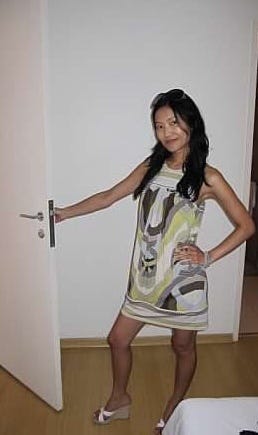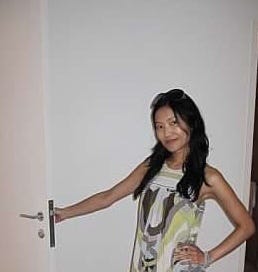My $154,800 money mistake
Take risks worth the rewards, but also be OK with humble pie when things change

In 2009, I had saved up roughly $41,000 in a company-sponsored 401(k) retirement account.
(By the way, if you’re wondering why it’s called a “401(k),” it’s because it’s literally section 401(k) of the U.S. IRS tax code, which specifies how people can defer income taxes on a portion of their salary when it’s directed toward special accounts.)
Anyway, most of this money came from working three years at a Fortune 250 national home builder, later acquired by Pulte Homes.
Out of college, I worked a few odd jobs but then found a rhythm in financial services — first processing loans at a small mortgage brokerage, and ultimately becoming a killer saleswoman as a senior loan originator and VP at a national bank.
Don’t let titles fool you: I made way more money as a saleswoman than I ever did at managing salespeople.
Content entrepreneur | Agency Founder & CEO | Bestselling author Featured in Forbes, The Wall Street Journal, Business Insider, Bankrate, Cheddar TV, and HuffPost | Join more than 6,480 people on the internet who follow me for discerning lifestyle, travel, and money content:
In short, my job was to help people get the money they needed to buy or build their first, second, or dream homes.
I was lucky, but I know for sure my luck was amplified because I combined it with a lot of hard work, being in the right place at the right time, and meeting the right people.
I cut my teeth in the industry, learned the ropes front-to-back, and worked my ass off.
I was often first in the office to work on loans in my sales pipeline, and bothered to study lending and product guidelines.
This gave me the power to structure complex loans, solve peoples’ tricky financial problems, and negotiate pricing for almost every kind of scenario.
My teammates often came to me for help when they were stuck with problem clients; ah, if I had a dollar for every person I helped...but teamwork am I right?
For me, I’d found something truly rewarding, something I was good at.
I enjoyed working with people, colleagues and clients alike.
Most importantly, I learned the art of negotiation and sales diplomacy, i.e., letting others have it your way. I know it worked, because to this day I still have plaques of corporate awards and two shoeboxes full of handwritten thank you cards from my clients back then.
I’d achieved early success at a young age, was making good money, financially independent, and able to buy my own house and car.
I’d even built up a solid little retirement nest egg.
Little did I know, I would lose it all within a matter of years.
What happened
Well, first, I decided to change careers.
I was burned out and didn’t want to originate loans anymore.
I wanted to get back to something more creative, what I went to school for: writing and journalism.
Then, I decided to go to business school full-time.
This meant I had to quit my job.
But I did so to attend an exciting program that took me overseas…living and studying in Paris and Rio de Janeiro, but also with business travel to China.
Next, there was a financial crisis.
While it wasn’t awful being in B-school as the markets were crashing, the ensuing fallout made things really difficult in the year or so immediately after.
As a result, the job market became incredibly small and competitive, both here and abroad.
While I took B-school as my chance to pursue a new career in financial broadcast journalism at CNBC, later on I took a contract to work for Bloomberg TV in London.
I thought it’d be easy to continue working overseas.
But around 2009, and in response to the financial crisis, the UK instituted new work visa requirements for anyone wanting to live and work there.
I can’t argue with it: Why would a country show preference to a foreigner if their own qualified citizens were having difficulty finding work? The foreigner better have something great to offer in terms of skills or investment.
The irony is that had I not gone to B-school, I could’ve easily gotten a work visa with my previous income and qualifications.
Here I was, fresh out of school with two master’s degrees, an MBA from Georgia State and another Masters in Management from the Sorbonne in Paris.
And unemployable.
I was not only looking for work, but also looking in a job market strained by layoffs, tightened recruitment budgets, and competition among people way more skilled and experienced than me in whatever new career track I wanted to pursue.
Finally, as all this happened, I got divorced.
Within a couple of years I also broke up with my next British boyfriend.
So I found myself back in New York City.
Multiply a career change…
x financial crisis
x horrible job market
x relocation
x divorce + break up
= me tapping into my 401(k) money to survive before getting back on my feet.
From a young age, I always had this vision that I would be a savvy businesswoman, a financial prowess.
I wasn’t feeling like this at all during this time. I had no job prospects, no house to call my own.
I practically broke even when I sold my first house, and the house my ex-husband and I lived in had built no equity in the time while we were married.
In fact, I got a cash advance from a credit card in order to pay a security deposit for my very first apartment in New York City.
It was a small, one bedroom apartment in the Upper East Side that was reasonably priced at $1700/month. (Today it’s more than double.)
In order to survive in New York and continue to pay rent and feed myself, I worked in retail jobs. But that barely covered my bills, which would soon include more student loans.
This forced me to tap into the only cash reserves I had by then: the money I’d accrued in my 401(k), by now an IRA.
This was painful to do but I had to do it because I had no other lifeline, no fallback: I was definitely not asking for help from my parents and they wouldn’t be able to help anyway, and I’d never relied on romantic partners for financial support.
A little interruption: For the growers, builders, and creators
Are you an entrepreneur, solopreneur, or small business owner?
I’m launching something that will help people make more money, more often, and from clients they love. Click here to learn more and sign up to be first to get exclusive news and offers.
I’d exhausted most of my cash reserves from studying full-time and living overseas; my journalism jobs paid barely anything.
Now, if you withdraw from your retirement account or IRA before you’re 59 ½, there are a few ways to avoid penalties, like if the money is used for a home renovation, among other reasons.
But you still have to pay for the tax on that cash, because it’s income.
When you see charts that say, “If you invested $1,000 dollars back in 2005 and continue investing at so-and-so annual rate of return, then 30 years later you’d have X million dollars…”
Lol. I feel this, but it’s sort of abstract now, and back then I was desperate.
Evaluating short-term risk vs. long-term reward
It’s useless to time travel mindlessly and spiral about things in the past and outside of your control, but I did learn two HUGE lessons:
Accept the reality of the situation you’re in
Decide how much short-term risk you’re willing to take for a longer-term reward
Did I want to change careers? Yes.
I no longer wanted to work in financial services in Atlanta.
Did I want to move overseas? Yes.
I was grateful to experience living and working in London, and to live with an ex-partner there.
Did I want to be in New York City? Yes.
I knew this was where I belonged in order to achieve my dreams, most of which eventually came through by applying the same work ethic I’d applied in my first career.
It took time, but I did find a stable job, and then another better one, and then another better one, and then started my own company which attracted the right calibre of people and clients for an eventual acquisition.
New York is also where I met my next long-term partner, who greatly impacted my life because of his same, big city, career-driven mindset.
Could I have worked other smaller jobs and harder, instead of working retail or tapping into my 401(k) money? Maybe.
But I was already working 2 part-time jobs and I had to save time to be available to apply to, network, and attend interviews for more stable, higher-paying jobs.
Another job, say, bartending or waitressing at night, would have exhausted me mentally and physically.
How I got to the number
I asked both google AI and ChatGPT what my $40,000 would be estimated today, had I left it untouched and compounding in value over 20 years.
Google AI said, “If you invested $40,000 in a 401k in 2005 and it grew at an average annual rate of 7%, the estimated value today (April 25, 2025) would be around $106,486.03. This calculation uses a 20-year period and an average annual growth rate of 7%.”
ChatGPT said, “A typical long-term average for the S&P 500 (a common benchmark for 401(k) investments) is about 7–10% annually after inflation.” On the low side it calculated $154,800. I used this number for this article.
There are math equations that back this up, but that’s what they estimated.
Do I have regrets? No.
Today, those numbers are irrelevant to me and I can’t shake my younger self and ask, “Are you sure?”
Am I better off today? Yep.
By a landslide.
I could have stayed married, in the same city, same career, moved back home after shit got tough…
But in life, everything is about risk and reward.
Only you can decide what risks are worth taking: I decided to use my own hard-earned cash to stay in a dream city to pursue a dream career.
In a way, my youth gave me that sense of naive and confident delusion that allowed me to be okay to tap into my cash reserves.
Somehow, I knew I would be okay. Even if it meant struggle in between.
Today, I take risks for sure, but I also ensure I’m saving money, too, because your savings is the gap between your income and your ego.
Best not to be too delusional about it.
And, I’m so, so proud of and grateful for that early version of me who worked so hard to be able to make it all happen.
So in a way, it wasn’t a mistake at all. Je ne regrette rien.
Because I have so much more now to show for it.😉
Was it worth the risk in the long term?
Abso-fucking-lutely.
**
P.S. Attention readers: Trying something new next week. Sending out a newsletter on Thursday to test out a few things.
**
Until next time, Shindy
You can also keep up with me on Instagram or TikTok
***
Like it
Did you enjoy this newsletter?
Please like it by clicking on the ❤️ at the very top or bottom of this post. This really helps get this newsletter recommended to Substack’s recommended shortlists.
Or, if you enjoyed this, learned something new, and it will help you in any way, then you can also show your appreciation by buying me a coffee:
Share it, tell someone else about it
When you share my newsletter with someone or another big audience, that is the greatest gift.
This letter is free to all subscribers
My Substack is free for now. But paid subscriptions at $5 monthly and $4 per month charged annually are so, so appreciated. I’m likely going to begin paywalling certain articles or guides soon. So become a founding member or manage or upgrade your subscription here:










Fascinating!!! Loved this!!!!!!